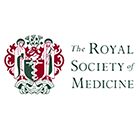What is Parkinson’s Disease?
What is Parkinson’s Disease?
Parkinson’s Disease is the second most common neurodegenerative condition after Alzheimer’s Disease and affects 1 in 500 people in the UK currently.
Parkinson’s Disease is an age-related condition with increasing prevalence with age and the mean age of onset is 65 years and the number of people with the condition is increasing all the time as the population ages and people are living longer.
Parkinsons’s Disease is due to a chemical imbalance in the brain, primarily a dopamine deficiency which occurs because dopaminergic neurones in the nigrostriatal pathway in the striatum (which is involved in modulating movement) in the basal ganglia part of the brain die at an accelerated rate in people with this condition.
Other neurotransmitters in the brain are also affected e.g. acetylcholine that leads to cognitive dysfunction and in fact deficit of this in patients with Parkinson’s Disease Dementia is even more pronounced than in Alzheimer’s Disease.
What are the main symptoms?
The main symptoms are tremor, slowness of movements, increased muscular rigidity and problems with balance and walking.
Also after diagnosis, specialists in the condition can identify and address a whole range of other symptoms from the “motor/movement symptoms” mentioned to the “Non-Motor Symptoms” which are classed into the following main categories:
1) Neuropsychiatric e.g. cognitive dysfunction ranging from Mild Cognitive Impairment to Dementia along with mood related symptoms such as Anxiety and Depression.
2) Sleep disorders e.g. REM Sleep Behavior Disorder, insomnia and sleep fragmentation.
3) Autonomic dysfunction symptoms e.g. symptomatic postural hypotension and over active bladder symptoms.
4) Gastrointestinal tract problems e.g. constipation.
5) Sensory problems e.g. unexplained pain.
These Non Motor Symptoms have a significant impact on quality of life, particularly the neuropsychiatric features and often more so than the Motor Symptoms as even in patients with diagnosed Parkinson’s disease these Non- Motor Symptoms are often under recognised and therefore left untreated.
How is Parkinson’s disease diagnosed?
Parkinson’s is a condition that is often not recognized, as many of the symptoms are attributed to ageing and therefore under diagnosed, many areas of this disease are very treatable with range of medications and treatment strategies for both the motor/movement symptoms and non-motor symptoms.
A clinical diagnosis made by a Movement Disorders Specialist will include:
Brain imaging scans e.g. functional CT scans (DaT scan) which detect dopamine deficiency are helpful when there is diagnostic uncertainty.
The importance of early correct diagnosis cannot be overemphasised as the condition is highly treatable with the aim of treatment to correct the chemical imbalances that occur particularly dopamine deficiency but also for example acetylcholine deficiency and therefore improve quality of life.
The above article was written by Dr Soumit Singhai (Parkinson’s Disease Specialist based at 25 Harley Street in London)









